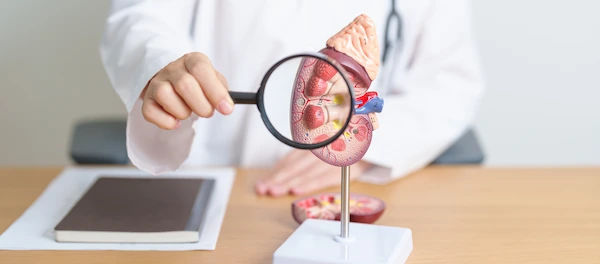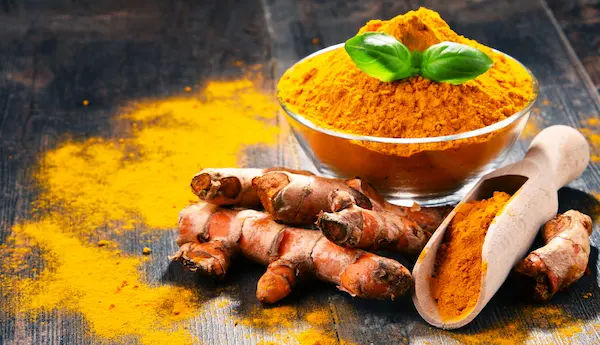COVID Medicine Options and Treatments
Know about covid medicine options for mild, moderate and severe disease, follow home tips for covid treatment.


Introduction
The COVID-19 pandemic has changed the way we approach healthcare, and understanding the available treatment options can help you make informed decisions. While most cases of COVID-19 are mild and can be managed at home, some people may require medical intervention. This guide will help you understand the different medicine options, treatments, and self-care measures to recover safely.
Understanding COVID-19 Treatment Options
COVID-19 affects people differently—some experience mild symptoms, while others may develop severe illness requiring hospitalization. Treatment depends on the severity of symptoms, underlying health conditions, and risk factors.
Consult Top Specialists for Personalised Tips
1. Mild to Moderate COVID-19 (Home Care)
Most people with mild symptoms can recover at home with rest, hydration, and over-the-counter (OTC) medications.
Common Medications for Symptom Relief
Fever & Body Pain: Paracetamol (acetaminophen) or ibuprofen can help reduce fever and muscle aches.
Cough & Sore Throat: Cough syrups (dextromethorphan) or lozenges may provide relief.
Congestion: Saline nasal drops or steam inhalation can ease breathing.
Important Note: Avoid self-medicating with antibiotics or steroids, as they are not effective against viral infections unless prescribed by a doctor.
2. Antiviral Medications (For High-Risk Patients)
Certain antiviral drugs can help reduce the severity of COVID-19 if taken early. These are usually prescribed for:
Elderly individuals (above 60)
People with chronic diseases (diabetes, heart disease, lung disease)
Immunocompromised patients
Common Antiviral Treatments
Molnupiravir (Lagevrio) – Taken orally within 5 days of symptom onset.
Paxlovid (Nirmatrelvir + Ritonavir) – An oral antiviral effective in reducing hospitalization risk.
Remdesivir (Veklury) – Administered intravenously in hospitals for moderate to severe cases.
Consult a doctor before taking these medications, as they may have side effects or drug interactions.
3. Hospital Treatment (Severe Cases)
If symptoms worsen (difficulty breathing, low oxygen levels, confusion), hospitalization may be needed. Treatments include:
Oxygen Therapy – For patients with low oxygen saturation.
Steroids (Dexamethasone) – Used in severe cases to reduce inflammation.
Monoclonal Antibodies – Helps the immune system fight the virus (used in specific cases).
Home Care Tips for COVID-19 Recovery
If you’re recovering at home, follow these steps for a smoother recovery:
1. Rest & Hydration
Get plenty of sleep to help your body fight the infection.
Drink warm fluids (water, herbal teas, soups) to stay hydrated and soothe a sore throat.
2. Monitor Symptoms
Use a pulse oximeter to check oxygen levels (normal range: 95-100%).
Watch for warning signs like persistent fever, breathlessness, or chest pain.
3. Eat Nutritious Foods
Include immunity-boosting foods like citrus fruits, ginger, turmeric, and protein-rich meals.
Avoid processed foods and excessive sugar.
4. Isolate & Prevent Spread
Stay in a separate room to protect family members.
Wear a mask and sanitize frequently touched surfaces.
When to Seek Emergency Care
Contact a doctor immediately if you experience:
Difficulty breathing or shortness of breath
Persistent chest pain or pressure
Confusion or inability to stay awake
Bluish lips or face (sign of low oxygen)
Prevention is the Best Medicine
While treatments are available, vaccination remains the best way to prevent severe COVID-19. Ensure you and your family are up-to-date with booster doses.
Final Thoughts:
Covid 19 medicine options and treatment are the main key for disease management. The treatment is divided as mild, moderate and severe which may help resolve the disease. Also home care tips for sooner covid-19 recovery are supportive in overall treatment. Consult a doctor for advice whenever required.
Consult a top general practitioner for the best advice
Consult Top Specialists for Personalised Tips

Dr Syed Mateen Pasha
General Physician
2 Years • MBBS
Bengaluru
PRESTIGE SHANTHINIKETAN - SOCIETY CLINIC, Bengaluru
Dr. Gaddam Manoj
General Practitioner
1 Years • MBBS
Hyderabad
Aaradhya clinic, Hyderabad

Dr. Anand Ravi
General Physician
2 Years • MBBS
Bengaluru
PRESTIGE SHANTHINIKETAN - SOCIETY CLINIC, Bengaluru

Dr. Syed Ismail Ali
General Practitioner
7 Years • MBBS
Hyderabad
Apollo 24|7 Clinic, Hyderabad

Dr. D Bhanu Prakash
General Practitioner
10 Years • MBBS, AFIH, Advanced certificate in critical care medicine, Fellowship in critical care medicine
Hyderabad
Apollo 24|7 Clinic, Hyderabad
Consult a top general practitioner for the best advice

Dr Syed Mateen Pasha
General Physician
2 Years • MBBS
Bengaluru
PRESTIGE SHANTHINIKETAN - SOCIETY CLINIC, Bengaluru
Dr. Gaddam Manoj
General Practitioner
1 Years • MBBS
Hyderabad
Aaradhya clinic, Hyderabad

Dr. Anand Ravi
General Physician
2 Years • MBBS
Bengaluru
PRESTIGE SHANTHINIKETAN - SOCIETY CLINIC, Bengaluru

Dr. Syed Ismail Ali
General Practitioner
7 Years • MBBS
Hyderabad
Apollo 24|7 Clinic, Hyderabad

Dr. D Bhanu Prakash
General Practitioner
10 Years • MBBS, AFIH, Advanced certificate in critical care medicine, Fellowship in critical care medicine
Hyderabad
Apollo 24|7 Clinic, Hyderabad




